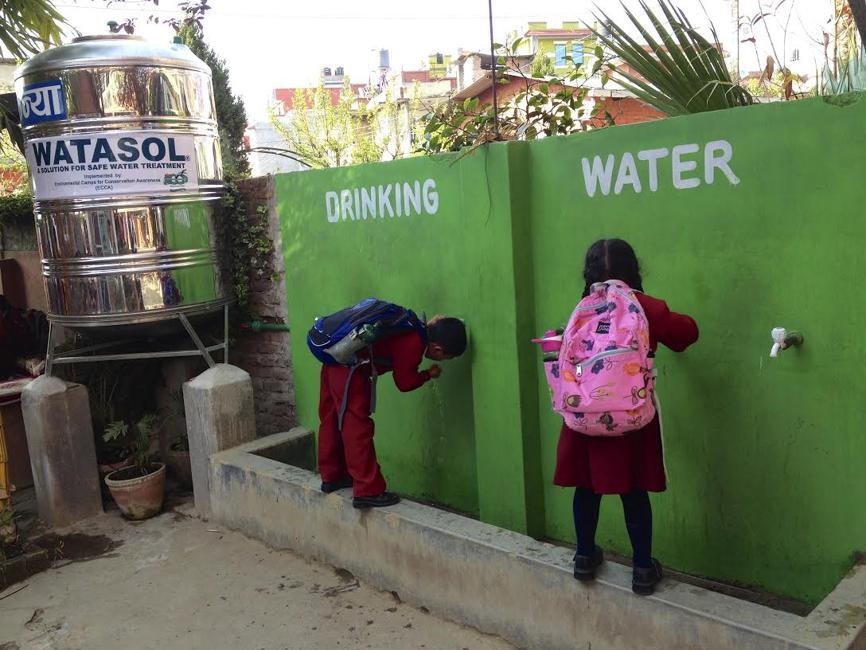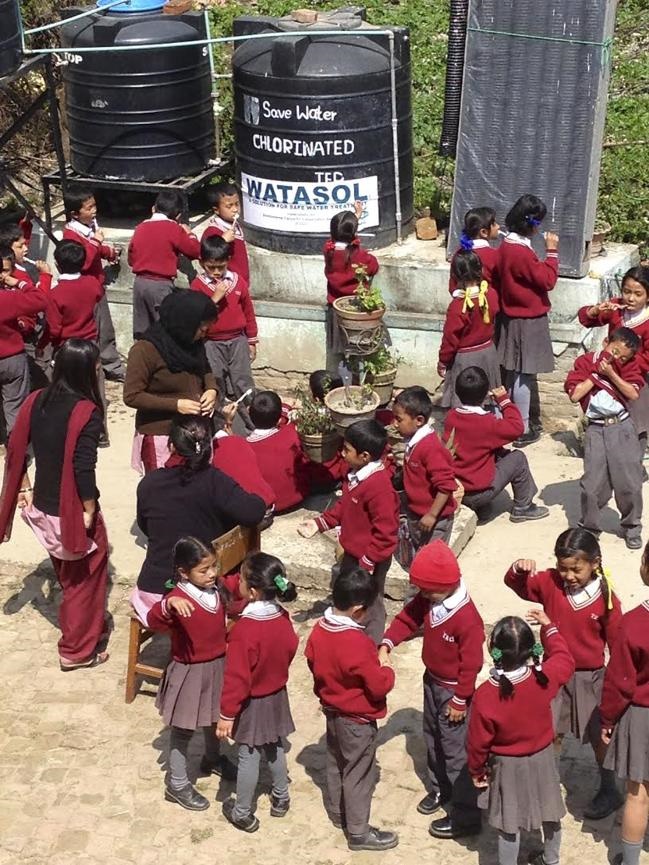
Half of the world’s population doesn’t have access to drinking water, food and electricity, but one man is on a mission to change this – especially the water situation.
The Geneva-based Antenna Technologies Foundation, created by Denis von der Weid, is currently developing technological solutions adapted to provide for those most in need. This includes the Wata system, which allows for the local production of safe, clean drinking water.
A professor of Columbian economics, Von der Weid has worked in the slums of Mumbai in India; as a pirate radio presenter in Africa, and as a political activist in Switzerland: the famous 1974 “Nestlé Kills Babies” campaign forms part of his extensive career.
“In 1984, I created the International Antenna Association, a network of human rights lawyers. But it quickly became apparent that it needed to go much further.
Realistically, what good is the fight for human rights if the poorest individuals do not have access to food, drinkable water and electricity? These elements are daily essentials, and yet three billion people do not have access to them.”
To fill this gap, the professor, who studied law and economics at the University of Fribourg, turned to the sciences almost by chance.
“At the time, I lived in India and was suffering from diarrhoea. In the North, drinkable water could be found in any tap due to the technology in place, and yet it was not the case down there. Why? Because the sciences are a business like anything else. They work for those who can pay.
“Half of the world’s population does not have access to basic necessities, and yet scientific research is not interested in this. In 1989, I therefore decided to create Antenna Technologies, with the objective of distributing types of technology focused on providing for the world’s most vulnerable communities.”
Twenty-five years later, the foundation now sends its solutions to all four corners of the planet. With a presence in 30 different countries, Antenna is bringing the fight on all fronts: food, agriculture, energy, medicine, microcredit, access to drinking water … the list goes on.
With the goal of clean, accessible drinking water in mind, the foundation launched two new Wata systems in June. This technology allows for the local production of clean drinking water.
However, they have their work cut out for them. According to figures released by the World Health Organisation, 663 million people in the world did not have access to clean, safe water in 2015 alone, with the majority of these people residing in sub-Saharan Africa (319 million) and South Asia (134 million). By improving the quality of drinking water, sanitation and basic hygiene within these regions, the organisation has estimated that about 842 000 deaths from diarrhoeal diseases could be avoided each year, including 340 000 children under 5 years old.
The Wata systems are used to purify large quantities of water with only a pinch of salt and an electrolysis process that transforms salt water into chlorine. In Burkina Faso, for example, 25 health centres are equipped with such a device alongside a team of trained staff, who are working to improve the current hygiene standards in local health care.
With 2000 Wata devices sold throughout the world, the Antenna Foundation estimates that approximately 15 million people have so far been given access to four litres of purified water per day. “And we could do the same for 50 million people, if we had more resources”.
“If the technology could be adapted, we could radically change the conditions of life for some of the poorest people in the world,” argues Von der Weid.
“Take water as the example. The countries of the global North have used the Wastewater Treatment Plant chlorine purification system for years. But this is not a possible solution in southern countries, where the necessary infrastructure is not already in place. Therefore, the technology must change to allow for drinking water to be produced in every home.
“Generally speaking, we are not lacking any technological skills. We simply need to channel these skills in a new direction, to tailor them to those who need them most. As no one is currently trying to do this, it has become Antenna’s mission. It started at about $1000 in a couple of homes, and has now grown to take on the cultivation of spirulina crops in India.
“As an edible micro-algae with a high nutritional value, a few grams per day of spirulina can spectacularly improve the nutritional state of malnourished children.”
In the brain of this tireless inventor, new projects are not in short supply. For example, the bright light of a solar bulb seems to have been turned on in the professor’s head.
“1.5 billion people do not have access to electricity. Therefore, we could offer to provide the solar lamps we currently have available. However, the problem arises when you break the bulb and you don’t have another on-hand to replace it. This is why we have developed a shock-resistant model.”
On a global level, these solutions may seem a little inconsequential. “But our objective is not to save the world. We could not,” states the professor.
“We are providing solutions and are taking them to the global South. This is not a charity: the idea has always been to stimulate the local economy, with the aim of empowering communities. This is why we have also initiated a ‘school’ programme in Burkina, to teach children about chlorine water treatment.”
And it works: in certain countries, a selection of solutions provided by Antenna are now being self-developed, as well as being produced and reproduced locally. “I hope that our model will be copied by other non-governmental organisations, as well as institutions and research centres. Today, the younger generations rather than the academics are interested in development. I find it unacceptable that most universities do not have a chair dedicated to research on basic, fundamental needs,” said Von der Weid.
“When I return to the Mumbai slums today, I find many of my friends in exactly the same place where I left them 25 years ago. The current system does not eliminate extreme poverty. And yet, improving the living conditions of one person is worth so much, it is worth a lifetime.”




 Publications
Publications
 Partners
Partners









